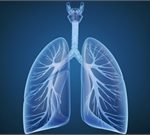
For those with heart problems, home-based rehab can take the place of hospital-based cardiac rehabilitation during the current coronavirus pandemic, heart experts say. “Home-based cardiac rehab is a solution to help provide cardiac rehabilitation to patients with heart disease in a home setting, and to help them survive and thrive during this challenging period of time,” said Dr. Randal Thomas. He’s a preventive cardiologist and medical director of the Mayo Clinic’s Cardiac Rehabilitation Program, in Rochester, Minn. “Home-based cardiac rehabilitation is much more than just going for a walk at home,” Thomas said in a clinic news release. “It is a structured, standardized, evidence-based approach to apply all therapies — lifestyle, medication and otherwise — that are known to help people with heart disease do better, feel better and live longer.” Mayo Clinic has used home-based cardiac rehab with a small number of patients over the years, but the coronavirus pandemic has made it necessary to transition all cardiac rehab to home-based settings in a matter of weeks. If you qualify for cardiac rehab, ask your care provider if at-home rehabilitation is an option for you as well. According to Thomas, there are many reasons why home-based cardiac rehab is so important right now. A big advantage of home rehab is that it keeps patients out of the hospital. Home rehab also ensures that patients… read on >
























-300x200.jpg)













